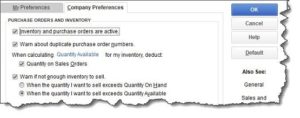10 Questions to Ask Your Accountant About Start Up Tax Exemption

Start up tax exemptions is a great way to help new businesses get started. They can help reduce the amount of money you owe in taxes, which can free up money to invest in your business. However, it’s important to understand how start up tax exemption work before you apply for them. When starting a new business, it’s important to be aware of the tax exemptions that are available to you. This can help you save money on your taxes and free up money to invest in your business.
Start up tax exemption is a great way to reduce the amount of taxes you owe. It is also a way to free up some money to invest in your business. However, there are a few things you should know about start up tax exemption before applying for one. Here are 10 questions to ask your accountant about start up tax exemption:
- What is a start up tax exemption? A start up tax exemption is a way to reduce the amount of taxes you owe on your business. It can help you free up money to invest in your business. This is because the government will not tax your business in its first year of operation.
- How does a start-up tax exemption work? A start up tax exemption can help reduce the amount of taxes you owe in the first year of operation. This can help you free up money to invest in your business.
- What are the benefits of a start up tax exemption? A start up tax exemption can help reduce the amount of taxes you owe. This is a great way to free up money to invest in your business. It can also help you get your business started on the right foot.
- How do I apply for a start up tax exemption? You can apply for a start up tax exemption by filling out the necessary paperwork with the government. These forms can be found online or through your local government office.
- What are the requirements for a start up tax exemption? There are certain requirements you must meet in order to qualify for a start up tax exemption. These requirements vary from country to country. However, some common requirements include being a new business, having a certain number of employees, and making a certain amount of revenue.
- How long does a start-up tax exemption last? A start up tax exemption typically lasts for the first year of operation. However, this can vary depending on the country you are in.
- What happens if I don’t qualify for a start-up tax exemption? If you don’t qualify for a start up tax exemption, you will have to pay taxes on your business. However, there may be other tax breaks or incentives you can take advantage of.
- Can I apply for a start up tax exemption if I’m not a new business? No, you must be a new business in order to qualify for a start up tax exemption. This is because the government wants to help new businesses get started.
- Do I need to have a certain number of employees to qualify for a start up tax exemption? This depends on the country you are in. Some countries require that you have a certain number of employees, while others do not.
- How much money can I save with a start up tax exemption? The amount of money you can save with a start up tax exemption varies. It depends on the country you are in and the amount of taxes you owe. However, it is a great way to save money on your taxes and free up money to invest in your business.
https://www.google.com/maps?cid=14731372876203948838
